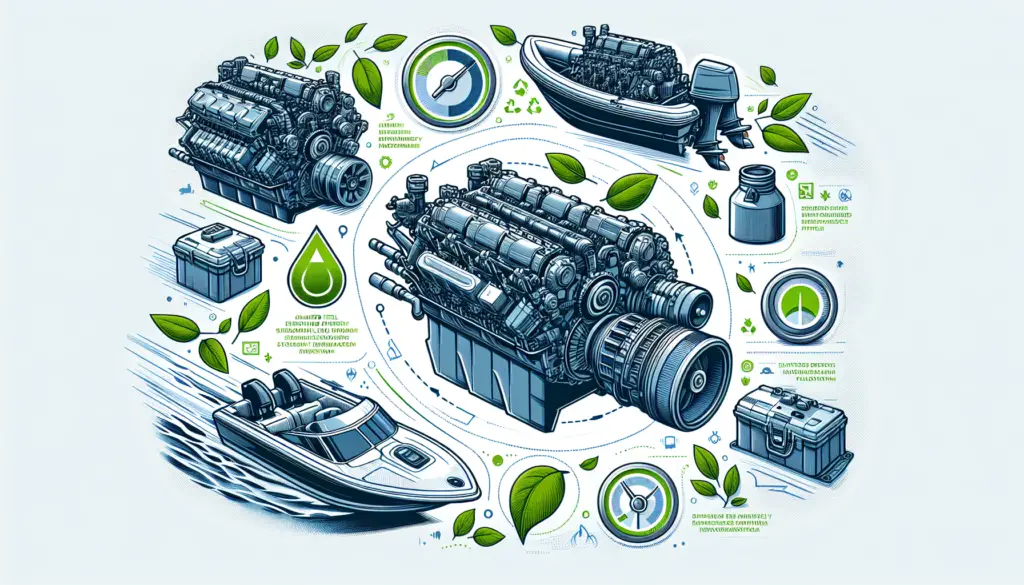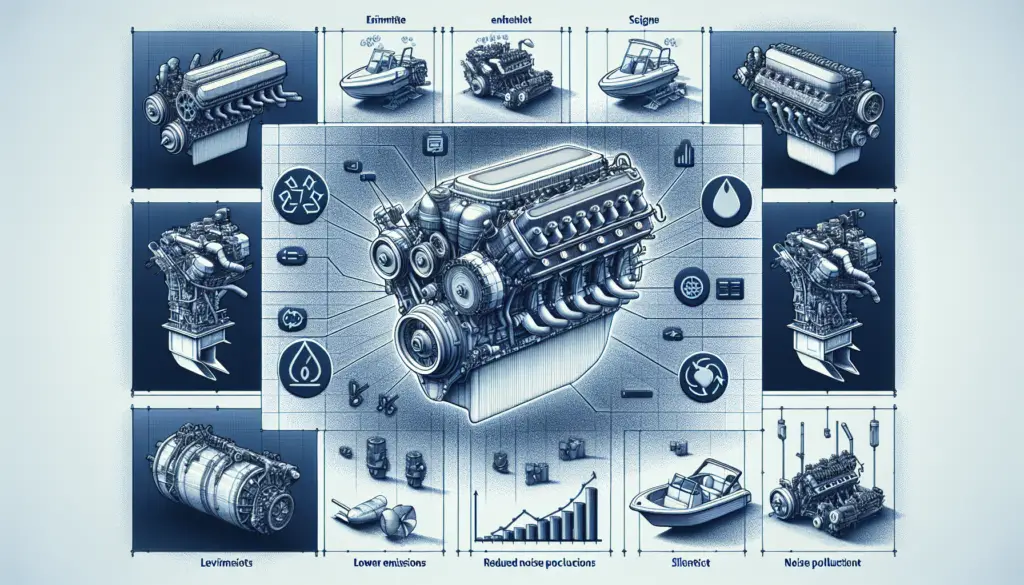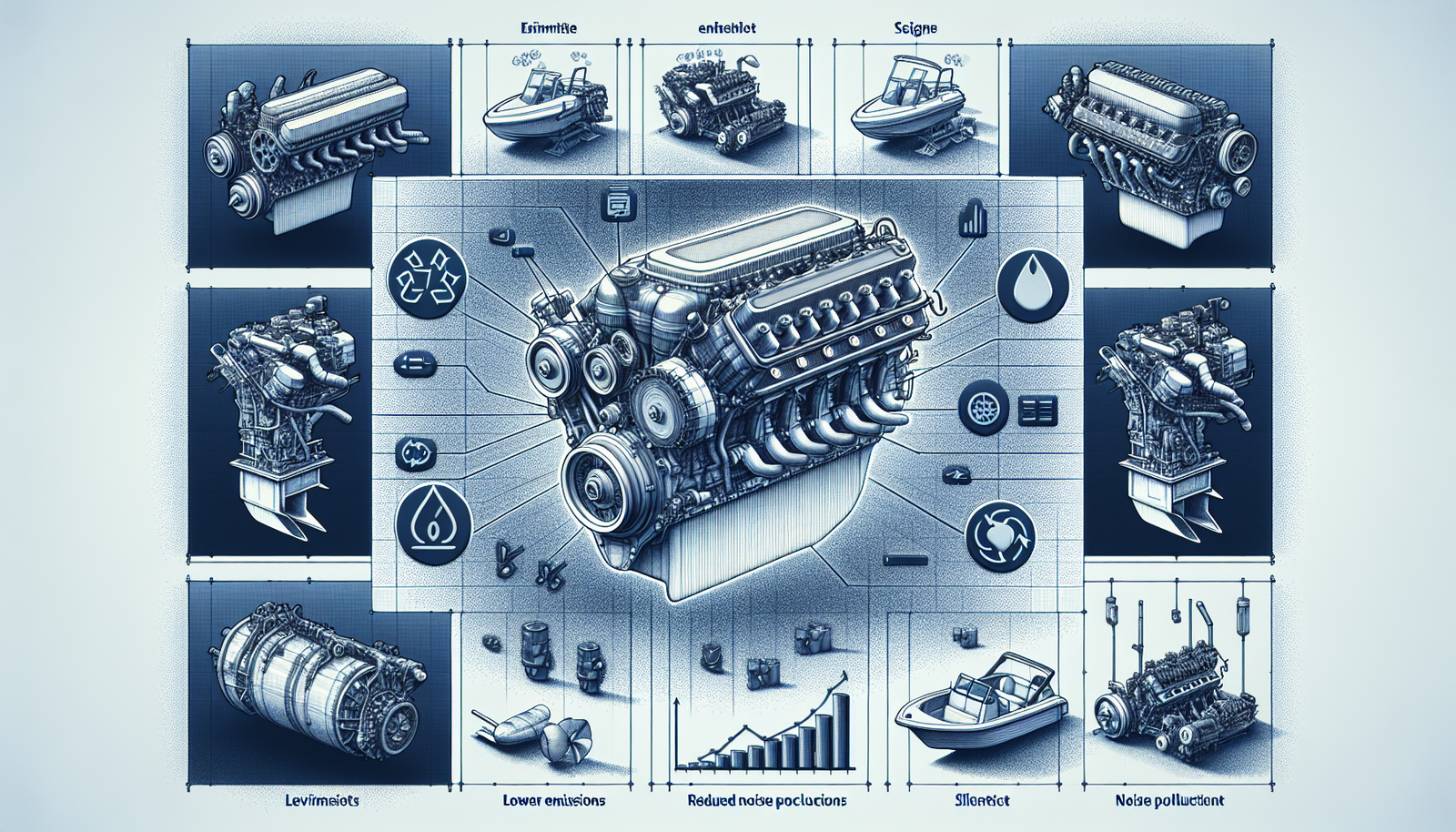If you’re on the quest for a greener lifestyle, your boat engine might be the last place you think to look. However, did you know that conventional boat engines can have a significant impact on the environment? This article will guide you on how to make an eco-friendly choice when selecting a boat engine. It will reveal options available to you and key considerations you need to keep in mind. Get ready to stay afloat while reducing your carbon footprint. With this guide, you’ll be well on your way to enjoying the open seas without harming our planet’s precious ecosystems.

Understanding The Importance Of Eco-Friendly Boating
With the increase of awareness about environmental conservation, it’s time we all pay attention to the impact of our activities, including recreational ones like boating. The significance of eco-friendly boating goes beyond just a trending topic. When you grasp its far-reaching implications and benefits, you’ll realize that it’s a necessity for preserving the pristine state of our water bodies.
Environmental Impact Of Traditional Boating
Traditional boating has been a significant contributor to pollution in oceans, lakes, and rivers. The release of fuels, oils, and untreated sewage into the water, combined with noise pollution disrupts marine life. Plus, the carbon dioxide emissions from boat engines contribute to the escalating global warming crisis. Undertaking boat maintenance and cleaning paints on land also pollutes the soil when toxic antifouling agents seep into the ground.
Benefits Of Environmentally Friendly Boating
Eco-friendly boating aims to reduce these detrimental effects. It minimizes the discharge of harmful substances into the marine ecosystem and cuts down atmospheric pollutants. Moreover, it offers you a silent and smooth boating experience, and in many instances, the operation and maintenance costs of eco-friendly boats are comparatively lower.
The Need For Sustainability in Marine Activities
With the rise in awareness about the harmful effects of human activities on the marine ecosystem, it’s high time we transitioned to more sustainable practices. Fortunately, with advancements in technology, eco-friendly boating options are increasingly becoming accessible, allowing us to reduce our ecological footprint while still enjoying our time on the water.
Defining An Eco-Friendly Boat Engine
A vital part of an eco-friendly boat is its engine. A boat engine’s eco-friendliness is determined by how it operates—its energy source, consumption, emission levels, and even its lifespan and maintenance requirements.
What Makes an Engine Eco-Friendly
An eco-friendly boat engine is one that is designed to reduce emission, effectively use energy, and minimize the overall environmental impact. It is developed with sustainable materials and technologies that promote long-term environmental conservation.
Difference between Traditional and Eco-Friendly Engine
Traditional boat engines run on gasoline or diesel and emit high levels of carbon and other greenhouse gases. On the other hand, an eco-friendly engine uses alternative sources of energy such as electricity, solar power, hybrid technology, or biofuels, generating fewer harmful emissions.
Environmental Benefits of Eco-Friendly Boat Engines
Using eco-friendly boat engines reduces air and water pollution, offering cleaner and healthier environments for both humans and marine life. It also aids in conserving non-renewable fossil fuel reserves, thereby moving towards more sustainable and environment-friendly practices.
Types Of Eco-Friendly Boat Engines
There are several kinds of eco-friendly boat engines available in the market today, catering to various needs and preferences.
Electric Engines
Electric engines are emission-free, quiet, and efficient. Their operation does not involve burning any fuel. Rather, they rely on rechargeable batteries, making them an excellent choice for short trips and in places where charging facilities are readily available.
Hybrid Engines
Hybrid boat engines combine the use of traditional fuel systems and electric power. They help in reducing fuel consumption and emission levels. These engines can switch between electric mode when cruising at low speeds and switch back to fuel mode for faster speeds.
Solar Powered Engines
Solar-powered boat engines convert sunlight into electricity, offering an abundant and clean source of energy. These engines do not emit any pollutants, making them ideal for environmentally conscious boaters.
Biofuel Engines
Biofuel engines operate on fuel derived from sources like plants and animal waste. These fuels are biodegradable, non-toxic, and significantly reduce the emission of greenhouse gases compared to conventional fuels.

Factors To Consider While Choosing An Eco-Friendly Boat Engine
Choosing an eco-friendly boat engine requires considerations beyond just the engine type. Here are some factors you should take into account:
Size and Weight of the Boat
The size and weight of your boat will influence the type and power of the engine you need. Larger and heavier boats may require more potent engines, while smaller boats can function efficiently with less powerful eco-friendly alternatives.
Intended Use of the Boat
Consider your boating lifestyle—are you a casual boater or a long-distance cruiser? Do you mostly sail on calm, inland waters or open seas? The engine you choose should meet your specific boating needs and handle the conditions you’ll often encounter.
Budget Allocation
While eco-friendly engines can be somewhat costlier initially, they often offer significant savings in the long run, due to lower fuel costs and maintenance needs. However, it’s still essential to consider your budget when choosing an engine.
Evaluating Energy Efficiency
Energy efficiency is a critical factor in determining the eco-friendliness and cost-effectiveness of a boat engine.
Understanding Energy Consumption
Every engine type has a distinct energy consumption pattern. Electric and solar engines, for instance, draw their energy from electricity or the sun and store it in batteries. Understanding these consumption patterns can help you estimate running costs and choose an engine that suits your boating habits.
Compare Fuel Efficiency Across Models
An engine’s fuel efficiency refers to how effectively it utilizes fuel. Higher fuel efficiency means lower fuel costs and lesser environmental impact. When choosing an engine, compare the fuel efficiency of different models to make an informed decision.
Identifying Energy Saving Features
Many eco-friendly engines come with features that reduce energy consumption, like energy recovery systems and automatic stop-start systems. Identifying these features can help you choose a more energy-efficient engine.
Checking Emission Levels
All boat engines emit some level of pollutants, but eco-friendly engines strive to keep these emissions to a minimum.
Understanding Emission Standards
Emission standards are set by regulatory bodies to limit the amount of pollutants that engines can emit. Familiarizing yourself with these standards will help you understand what emission levels are considered eco-friendly.
Checking for Emission Certifications
Ensure that the engine you choose has the necessary certifications indicating that its emission levels comply with set standards. These certifications provide an assurance that the engine will have minimal impact on the environment.
Comparing Emission Output Across Models
Before you decide on an engine, compare the emission output of different models. The more emissions an engine produces, the more harmful it is to the environment. Choose an engine that produces the least amount of emissions.
Understanding Maintenance and Lifespan
An eco-friendly engine should be durable and require low maintenance.
Maintenance Needs of Eco-Friendly Engines
Eco-friendly engines generally need less frequent maintenance than traditional engines. However, each engine type has specific maintenance requirements that you should understand before making a choice.
Durability and Longevity
A truly eco-friendly engine is one that lasts long. The longer your engine’s lifespan, the less often you will need to replace it, reducing its overall environmental impact.
Cost-Benefit Analysis Over Long Term Use
While eco-friendly engines may be more expensive upfront, they could save you money in the long run through reduced fuel costs and maintenance expenses. So, it’s worth doing a cost-benefit analysis over the expected lifespan of the engine before you make your decision.
Exploring Brands and Manufacturers
Several manufacturers are creating eco-friendly boat engines. Choosing one can be daunting, but it’s easier when you know what to look for.
Popular Brands for Eco-Friendly Engines
Some popular brands have earned high praise for their commitment and innovative approach to producing eco-friendly boat engines. Before selecting an engine, spend some time researching these brands and their product ranges.
Reviews and Ratings of Various Manufacturers
Exploring reviews and ratings can give you insights into the reliability and performance of engines from various manufacturers. Positive reviews from other users can be persuasive but also look out for any recurrent complaints or issues.
Manufacturer’s commitment to Environment Conservation
Choose a manufacturer that is genuinely committed to environmental conservation. Such a manufacturer would not only produce eco-friendly engines but also follow sustainable practices in all aspects of their business.
Considering Installation and Retrofitting Options
Whether you’re buying a new boat or upgrading your current one, it’s crucial to think about the installation process and the compatibility of the eco-friendly engine with your boat.
Ease of Installation
The ease of installation can vary based on the type of the engine and the design of your boat. Some engines may require substantial modifications to your boat, adding to the installation costs.
Compatibility with Existing Boat Design
The new engine should be compatible with the design and functionality of your boat. For instance, if you plan to convert your boat to solar power, there should be enough surface area for solar panels.
Understanding Retrofitting Possibilities
In many cases, existing boats can be retrofitted with eco-friendly engines. Consider this option if you wish to make your current boat eco-friendly without buying a new one.
Taking Advantage of Green Boating Incentives
Eco-friendly boating practices can earn you different incentives and benefits from local authorities and manufacturers.
Understanding Tax Benefits and Incentives
Switching to eco-friendly engines may qualify you for tax benefits or subsidies in some regions. Ensure to find out about these incentives and how to benefit from them.
Environmental Grants and Funding for Green Boating
Authorities and organizations sometimes offer grants and funding to encourage green boating. These could help offset the cost of buying and installing an eco-friendly engine.
Discounts From Eco-Friendly Brands
Some manufacturers or brands offer discounts on their eco-friendly products as part of their mission to promote sustainable boating.
Switching to an eco-friendly boat engine might seem like a significant change initially, but as you consider the far-reaching benefits, positive impact on your boating experiences, and potential long-term cost savings, it makes for a worthy investment. By choosing an eco-friendly boat engine, you’re not just enhancing your boating lifestyle but literally making waves in marine conservation.

